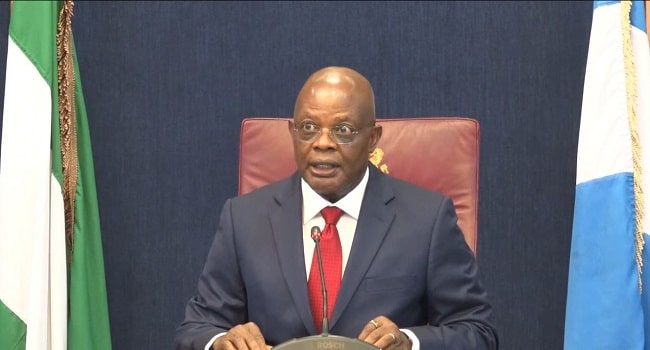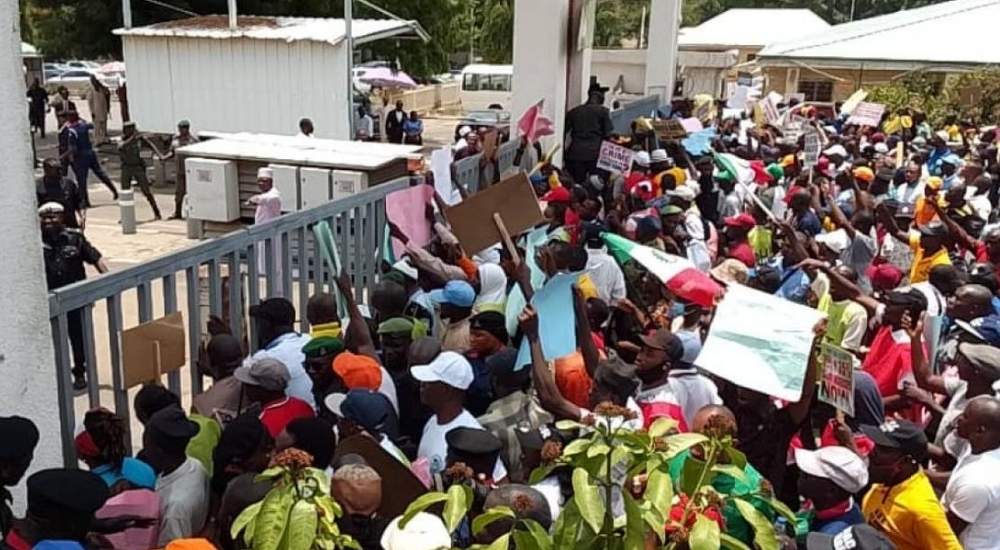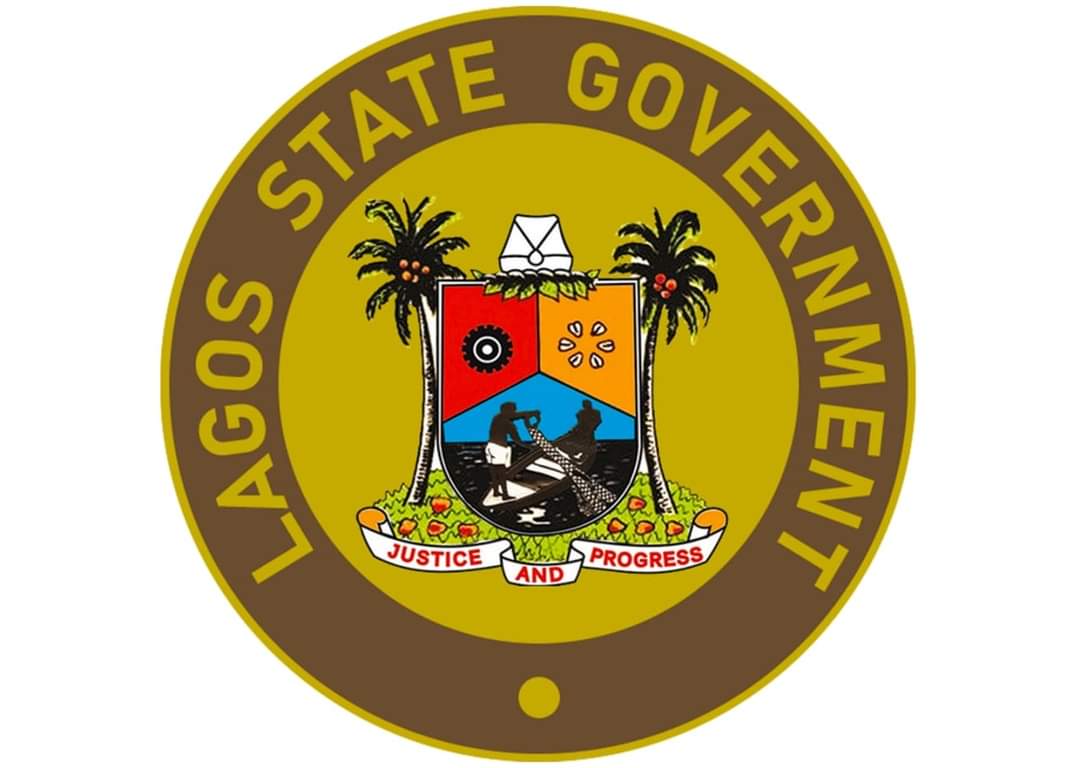
The Director General of the Manufacturers Association of Nigeria (MAN), Segun Ajayi-Kadir, has expressed deep concern over the recent tariff hikes introduced by U.S. President Donald Trump, stating that the move poses serious threats to Nigerias manufacturing sector and the countrys broader economic stability.Ajayi-Kadir described the new tariffs as a strategic move aimed at boosting American domestic manufacturing, but warned that such policies create significant barriers for Nigerian exporters, particularly at a time when the country is just beginning to expand its non-oil export footprint. He said; Trump is shaking the global trade table in line with his America First agenda. But for us, this comes at a time when were only beginning to gain momentum in manufactured exports to the U.S., which is part of our strategy to ease forex pressure.He noted that the United States remains one of Nigerias most important trade partners, accounting for nearly 7 percent of the countrys non-oil exports. In 2024, trade between Nigeria and the U.S. was valued at 9.59 trillion, with Nigerian exports reaching 5.52 trillion. The imposition of a 14 percent tariff now directly threatens this trade relationship, particularly as Nigeria works with a 55 trillion budget and contends with declining oil prices falling below the benchmark of $75 per barrel.Ajayi-Kadir emphasized that the new tariff regime would seriously undermine the competitiveness of Nigerian goods in the U.S. market. Exporters across key sectorsincluding agro-processing, pharmaceuticals, chemicals, basic metals, and non-metallic productsdepend heavily on American demand. With the increased costs caused by tariffs, he said, We expect demand to drop significantly. He pointed out that processed agricultural products like cocoa derivatives, sesame seeds, and gingercommodities that had gained modest but growing market share in the U.S.would likely experience a sharp fall in export volume. In 2024, agricultural exports generated over 4.42 trillion, and the U.S. was one of the top destinations. According to Ajayi-Kadir, This new tariff could potentially wipe out 1 to 2 trillion of that figure annually. On the domestic front, Ajayi-Kadir warned that the ripple effect of the policy could lead to job losses. Companies may be forced to scale down production or lay off staff to cut costs, he said. Contract manufacturers, SMEs, and businesses in export-focused economic zones will be hardest hit. He added that local firms integrated into global supply chains could also lose their competitive edge, especially as U.S. partners may seek alternative sourcing options. He further warned that the tariff policy could damage investor confidence at a critical time when Nigeria is trying to position itself as West Africas top manufacturing hub. In 2023, the manufacturing sector attracted over $1.6 billion in capital imports. That figure, he cautioned, could drop significantly in 2025 if the government doesnt respond with smart, supportive policies. Ajayi-Kadir urged the Nigerian government to act swiftly by creating a more business-friendly environment. Regulatory agencies must step up. The Nigerian Ports Authority must forget any idea of increasing port fees. The 4 percent free-on-board charge being proposed by Customs should be scrapped completely, he said.The post
Trumps tariffs threaten Nigerian Manufacturers MAN DG appeared first on
Linda Ikeji Blog.

 The Director General of the Manufacturers Association of Nigeria (MAN), Segun Ajayi-Kadir, has expressed deep concern over the recent tariff hikes introduced by U.S. President Donald Trump, stating that the move poses serious threats to Nigerias manufacturing sector and the countrys broader economic stability.Ajayi-Kadir described the new tariffs as a strategic move aimed at boosting American domestic manufacturing, but warned that such policies create significant barriers for Nigerian exporters, particularly at a time when the country is just beginning to expand its non-oil export footprint. He said; Trump is shaking the global trade table in line with his America First agenda. But for us, this comes at a time when were only beginning to gain momentum in manufactured exports to the U.S., which is part of our strategy to ease forex pressure.He noted that the United States remains one of Nigerias most important trade partners, accounting for nearly 7 percent of the countrys non-oil exports. In 2024, trade between Nigeria and the U.S. was valued at 9.59 trillion, with Nigerian exports reaching 5.52 trillion. The imposition of a 14 percent tariff now directly threatens this trade relationship, particularly as Nigeria works with a 55 trillion budget and contends with declining oil prices falling below the benchmark of $75 per barrel.Ajayi-Kadir emphasized that the new tariff regime would seriously undermine the competitiveness of Nigerian goods in the U.S. market. Exporters across key sectorsincluding agro-processing, pharmaceuticals, chemicals, basic metals, and non-metallic productsdepend heavily on American demand. With the increased costs caused by tariffs, he said, We expect demand to drop significantly. He pointed out that processed agricultural products like cocoa derivatives, sesame seeds, and gingercommodities that had gained modest but growing market share in the U.S.would likely experience a sharp fall in export volume. In 2024, agricultural exports generated over 4.42 trillion, and the U.S. was one of the top destinations. According to Ajayi-Kadir, This new tariff could potentially wipe out 1 to 2 trillion of that figure annually. On the domestic front, Ajayi-Kadir warned that the ripple effect of the policy could lead to job losses. Companies may be forced to scale down production or lay off staff to cut costs, he said. Contract manufacturers, SMEs, and businesses in export-focused economic zones will be hardest hit. He added that local firms integrated into global supply chains could also lose their competitive edge, especially as U.S. partners may seek alternative sourcing options. He further warned that the tariff policy could damage investor confidence at a critical time when Nigeria is trying to position itself as West Africas top manufacturing hub. In 2023, the manufacturing sector attracted over $1.6 billion in capital imports. That figure, he cautioned, could drop significantly in 2025 if the government doesnt respond with smart, supportive policies. Ajayi-Kadir urged the Nigerian government to act swiftly by creating a more business-friendly environment. Regulatory agencies must step up. The Nigerian Ports Authority must forget any idea of increasing port fees. The 4 percent free-on-board charge being proposed by Customs should be scrapped completely, he said.The post Trumps tariffs threaten Nigerian Manufacturers MAN DG appeared first on Linda Ikeji Blog.
The Director General of the Manufacturers Association of Nigeria (MAN), Segun Ajayi-Kadir, has expressed deep concern over the recent tariff hikes introduced by U.S. President Donald Trump, stating that the move poses serious threats to Nigerias manufacturing sector and the countrys broader economic stability.Ajayi-Kadir described the new tariffs as a strategic move aimed at boosting American domestic manufacturing, but warned that such policies create significant barriers for Nigerian exporters, particularly at a time when the country is just beginning to expand its non-oil export footprint. He said; Trump is shaking the global trade table in line with his America First agenda. But for us, this comes at a time when were only beginning to gain momentum in manufactured exports to the U.S., which is part of our strategy to ease forex pressure.He noted that the United States remains one of Nigerias most important trade partners, accounting for nearly 7 percent of the countrys non-oil exports. In 2024, trade between Nigeria and the U.S. was valued at 9.59 trillion, with Nigerian exports reaching 5.52 trillion. The imposition of a 14 percent tariff now directly threatens this trade relationship, particularly as Nigeria works with a 55 trillion budget and contends with declining oil prices falling below the benchmark of $75 per barrel.Ajayi-Kadir emphasized that the new tariff regime would seriously undermine the competitiveness of Nigerian goods in the U.S. market. Exporters across key sectorsincluding agro-processing, pharmaceuticals, chemicals, basic metals, and non-metallic productsdepend heavily on American demand. With the increased costs caused by tariffs, he said, We expect demand to drop significantly. He pointed out that processed agricultural products like cocoa derivatives, sesame seeds, and gingercommodities that had gained modest but growing market share in the U.S.would likely experience a sharp fall in export volume. In 2024, agricultural exports generated over 4.42 trillion, and the U.S. was one of the top destinations. According to Ajayi-Kadir, This new tariff could potentially wipe out 1 to 2 trillion of that figure annually. On the domestic front, Ajayi-Kadir warned that the ripple effect of the policy could lead to job losses. Companies may be forced to scale down production or lay off staff to cut costs, he said. Contract manufacturers, SMEs, and businesses in export-focused economic zones will be hardest hit. He added that local firms integrated into global supply chains could also lose their competitive edge, especially as U.S. partners may seek alternative sourcing options. He further warned that the tariff policy could damage investor confidence at a critical time when Nigeria is trying to position itself as West Africas top manufacturing hub. In 2023, the manufacturing sector attracted over $1.6 billion in capital imports. That figure, he cautioned, could drop significantly in 2025 if the government doesnt respond with smart, supportive policies. Ajayi-Kadir urged the Nigerian government to act swiftly by creating a more business-friendly environment. Regulatory agencies must step up. The Nigerian Ports Authority must forget any idea of increasing port fees. The 4 percent free-on-board charge being proposed by Customs should be scrapped completely, he said.The post Trumps tariffs threaten Nigerian Manufacturers MAN DG appeared first on Linda Ikeji Blog.  Like
0
Like
0
 Dislike
0
Dislike
0
 Love
0
Love
0
 Funny
0
Funny
0
 Angry
0
Angry
0
 Sad
0
Sad
0
 Wow
0
Wow
0

















